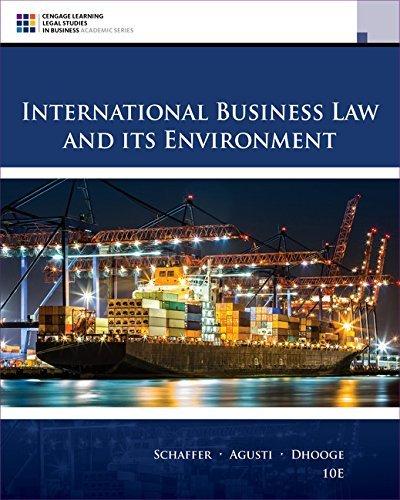The Tribunal recalls that the Government of Kenya, on 27 April 1989, concluded an agreement with a
Question:
World Duty Free contends that Kenya breached the 1989 Agreement in several respects, illegally expropriated its properties and destroyed its rights under the agreement. On this basis, it requests restitution or, in the alternative, compensation .... ,
Kenya, for its part, submits that the 1989 Agreement was procured by paying a bribe to the then President of Kenya, Daniel arap Moi. It adds that the payment of such a bribe is criminal and that the resulting contract does not have the force of law. It is unenforceable and the claims cannot be heard as a matter of public policy. Furthermore, as a matter of applicable law, the contract is voidable and has been validly avoided by Kenya. Consequently, the claims must be dismissed with prejudice.
1. How does the tribunal support its conclusion that bribe payments are unacceptable under international public policy? What role does the Convention on Preventing and Combating Corruption that is approved by the African Union play in the tribunal's reasoning?
2. How important is it that Kenyan and English law also prohibit bribe payments?
3. What does the tribunal mean when it says that the bribe and the 1989 Agreement were "one overall transaction"?
Fantastic news! We've Found the answer you've been seeking!
Step by Step Answer:
Related Book For 

International Business Law And Its Environment
ISBN: 9781305972599
10th Edition
Authors: Richard Schaffer, Filiberto Agusti, Lucien J. Dhooge
Question Posted:





